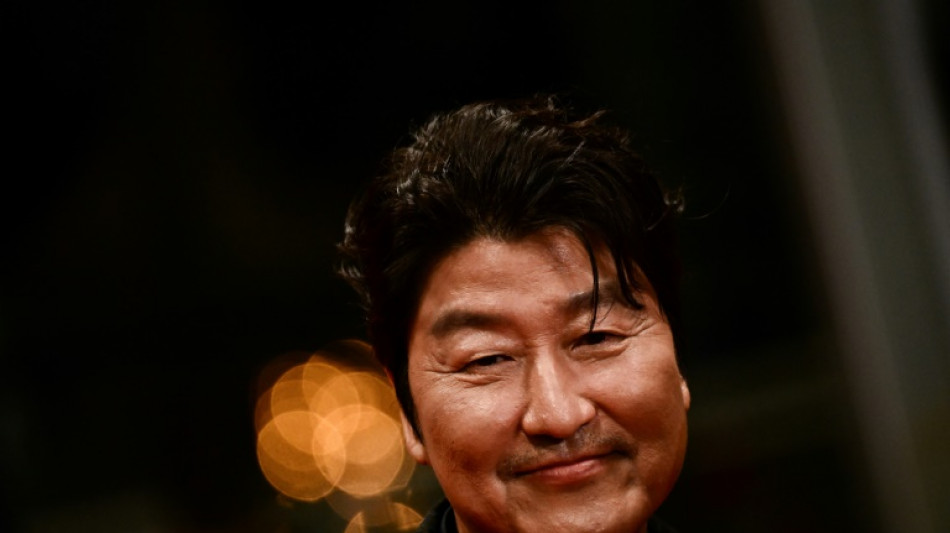
| RBGPF | 100% | 60.1 | $ | |
| CMSC | -0.65% | 24.57 | $ | |
| SCS | -1.33% | 13.54 | $ | |
| RELX | 0.51% | 46.81 | $ | |
| RYCEF | -0.29% | 6.78 | $ | |
| BCC | -2.76% | 148.41 | $ | |
| RIO | -1.53% | 62.03 | $ | |
| NGG | -0.68% | 62.83 | $ | |
| JRI | -0.98% | 13.24 | $ | |
| CMSD | -0.61% | 24.43 | $ | |
| BCE | -1.46% | 26.63 | $ | |
| VOD | -0.56% | 8.86 | $ | |
| BTI | 1.01% | 37.71 | $ | |
| AZN | -0.06% | 66.36 | $ | |
| GSK | -0.38% | 34.02 | $ | |
| BP | -1.24% | 28.96 | $ |

'Parasite' star Song Kang-ho feels weight of global stardom
Song Kang-ho says he feels the weight of responsibility as one of the most recognisable faces of Korean cinema after the global success of "Parasite".
Having won best actor at Cannes last year for his role in "Broker", the 56-year-old actor was back at this year's festival with an out-of-competition comedy, "Cobweb", about a director desperately trying to change the ending of his film to turn it into a masterpiece.
Set during the authoritarian days of 1970s South Korea, "Cobweb" shows the director struggling to manage the chaos of angry producers, hysterical actors and over-bearing censors.
Song said he didn't have to look far for motivation.
"Maybe I've never been on a film set quite like this," he said, laughing, "But I've certainly had some similar psychological panic -- it's not just me, anyone in the industry knows it."
- 'Tumbled into films' -
Song was already a major star in South Korea long before "Parasite" won the Palme d'Or at Cannes in 2019 and Best Picture at the Oscars the following year.
But he started out with humbler dreams on the stage in Seoul's renowned Daehak-ro theatre scene.
"Not at all did I expect to become famous. I never even dreamed of playing in a film," he told AFP.
"I was a stage actor 30 years ago and my dream was to become a very good actor on stage. I really tumbled into films and the cinema industry by chance."
But "Parasite" director Bong Joon-ho, who also cast him in cult favourite "Snowpiercer" and two other films, told the New York Times that he first met Song during that period in the 1990s and could immediately "tell he had the makings of a juggernaut".
Song proved him right, bringing an everyman quality to very diverse roles, from a country detective in Bong's "Memories of Murder", a conflicted priest in "Thirst" or a cunning thief in "The Good, The Bad, The Weird".
He has become one of South Korea's biggest names just as its cultural dominance is peaking around the world across film, music and much more.
"I would be lying if I said I don't feel the weight of it. I feel the responsibility," he said.
"But I would say it's a healthy weight, not a negative one. I know that there are a lot of expectations of me as one of the faces of Korean film and I feel I have to live up to the expectations of my fans as well, but it's a positive thing."
He said it was South Korea's rocky past -- through war with its northern neighbour and years of military dictatorship -- that helped foster the dynamism of its culture once it became a democracy.
"Korea really went through a very dynamic history because of its geopolitical position," Song said. "Artists felt a social imperative to create and push forward all the time. This was the source of the diversity in Korean cinema.
"It's like if you build a dam in a river -- as soon as there is a small crack, the force of the water coming through is incredible."
L.Bohannon--NG



